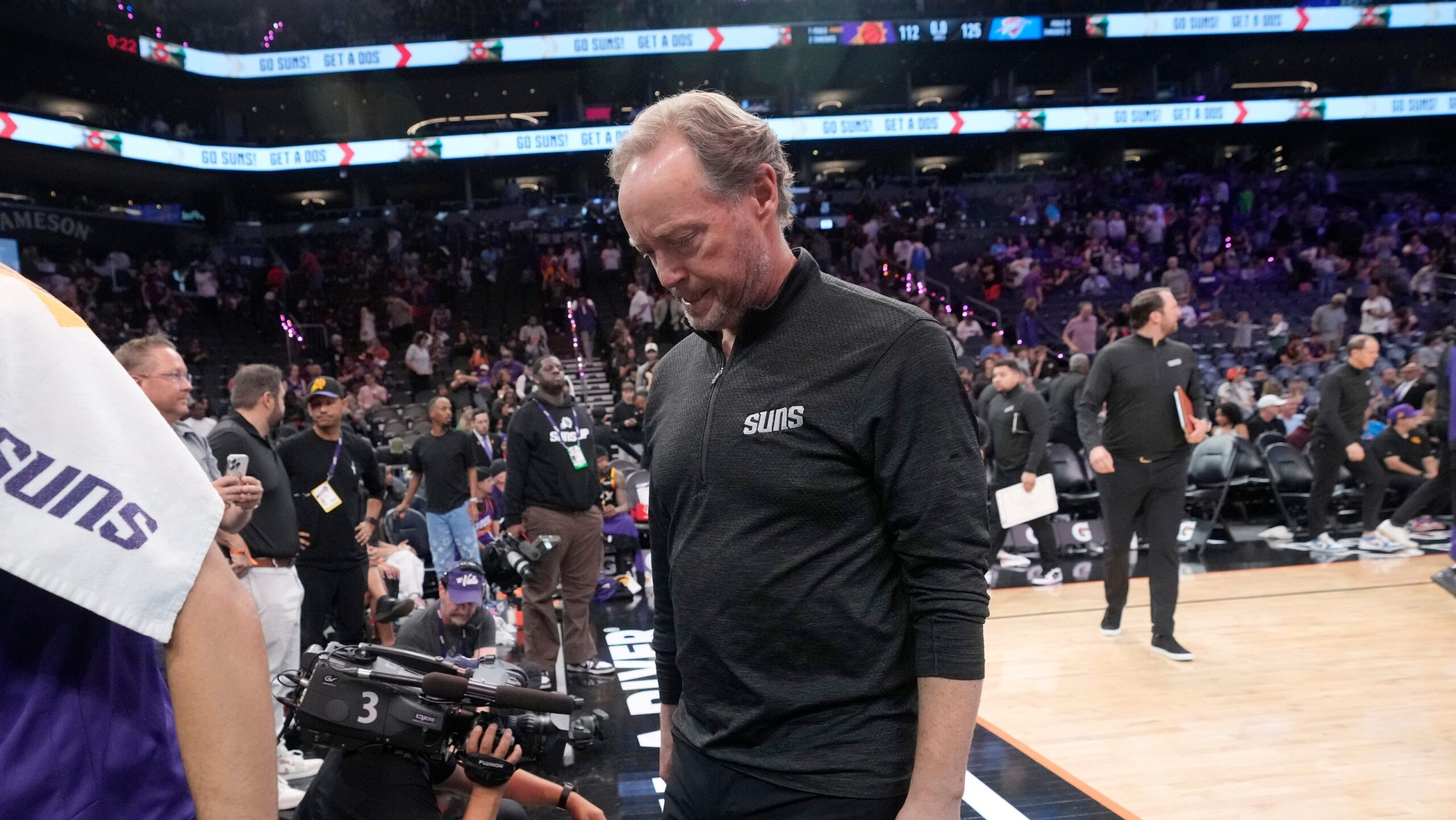The Phoenix Suns’ abrupt firing of head coach Mike Budenholzer after a single, disappointing season has sent ripples throughout the NBA. While team owner Mat Ishbia alluded to multiple factors behind the decision, Suns TV analyst and former player Eddie Johnson has provided insightful commentary on why Budenholzer’s coaching style failed to connect with the team. This article delves into Johnson’s analysis, exploring the clash between Budenholzer’s ‘old school’ approach and the modern NBA player, and the impact on team dynamics and performance.
The Suns’ Disappointing Season and Budenholzer’s Dismissal
The Phoenix Suns’ 36-46 season was widely considered an embarrassment, falling far short of expectations given the team’s star-studded roster. This underperformance led to the swift dismissal of Mike Budenholzer, who was let go less than a year after Frank Vogel suffered the same fate. Ishbia cited several reasons for the firing, but didn’t fully disclose what they were.
“During the Phoenix Suns’ end-of-season press conference on Thursday, April 17, the team’s owner Mat Ishbia admitted there were several things that ‘didn’t work’ which led to the team’s ’embarrassing’ 36-46 season,” reported The Arizona Republic.
Budenholzer’s ‘Old School’ Coaching Style
Mike Budenholzer is known for his direct, no-nonsense coaching style, honed during his time with the San Antonio Spurs under Gregg Popovich. This approach, characterized by tough love and high expectations, had brought him success in previous roles with the Atlanta Hawks and Milwaukee Bucks. Upon his arrival in Phoenix, Budenholzer promised to coach the players hard, setting the stage for a potentially challenging dynamic.
Collin Gillespie, a former player under Mike Malone, said that both Malone and Budenholzer have similar old school coaching styles, being “tough on his guys” which he liked.
Eddie Johnson’s Analysis: Buy-in and Balance
Eddie Johnson believes that any coaching style can be effective if the players fully embrace it. However, he emphasized the need for a balance between a demanding approach and a supportive environment. According to Johnson, Budenholzer’s failure to strike this balance may have alienated some players, particularly the seasoned veterans on the team.
“Any coaching style works, just like any offense could work, if everybody buys into it,” Johnson told The Arizona Republic. “So if everyone buys into it and it’s explained well, and it’s a balance between being hard-lined and softness that allows the players to accept it, it’s a different animal.”
The Veteran Player Perspective
Johnson highlighted the difference in how younger players and established veterans respond to coaching styles. Younger players eager to prove themselves may be more willing to accept a demanding approach, especially if it translates to playing time. However, seasoned veterans, who have already achieved success in the league, may be less tolerant of perceived imbalances or disrespectful treatment.
“It’s not surprising that Collin would say that because Collin is in a space of having to prove himself. It’s different because he’s gonna accept anything as long as playing time comes along with it. A seasoned veteran is not gonna put up with it if he feels like it’s unbalanced,” Johnson continued.
Communication Breakdown and Locker Room Trust
One of the key issues Johnson identified was a breakdown in communication between Budenholzer and some of the Suns’ key players. He cited instances where Budenholzer was “too vocal” in team huddles and timeouts, potentially undermining his authority and eroding trust within the locker room. Johnson also mentioned the coach’s strained relationship with center Jusuf Nurkic, who reportedly went weeks without speaking to Budenholzer.
Johnson believes that Budenholzer likely lost the Suns’ locker room trust factor before he was being “too vocal” in team huddles and timeouts.
Budenholzer’s Stance on ‘Hard Conversations’
Budenholzer, when asked about his coaching style, emphasized the importance of honesty and transparency in his interactions with players. He believed that having “hard conversations” was a necessary part of coaching and helping players reach their full potential. However, Johnson argued that the manner in which these conversations were conducted was crucial, and that Budenholzer may have lacked the necessary tact and empathy.
“You gotta have hard conversations in the league,” Budenholzer said. “You gotta be honest. You gotta coach them hard, try and be transparent. That’s the goal. It’s not easy but usually that’s the right thing to do, and probably in life. So, that’s part of coaching hard, yes.”
The Coach-Player Relationship as a Partnership
Johnson drew a parallel between the coach-player relationship and parenting, emphasizing the importance of mutual respect and understanding. He cited his own experience with the late Cotton Fitzsimmons, who, despite being a demanding coach, always showed genuine care and support for his players. Johnson argued that coaches need to connect with players on a personal level, demonstrating that their tough love comes from a place of genuine concern.
“It’s almost like your parent will scream at you, but you know your parent loves you,” Johnson said. “So you’re not gonna go off on your parent. You’ll understand, and as you get older you’ll understand even more. With coaching, it’s the same way.”
Conclusion: A Mismatch of Styles
Ultimately, Eddie Johnson’s analysis suggests that Mike Budenholzer’s coaching style was not a good fit for the Phoenix Suns. While Budenholzer’s ‘old school’ approach may have worked in other contexts, it failed to resonate with the team’s veteran-laden roster. The lack of balance between demanding coaching and supportive communication, coupled with a breakdown in trust, contributed to a disappointing season and Budenholzer’s swift dismissal. The Suns now face the challenge of finding a new coach who can effectively connect with their players and unlock the team’s full potential.

Leave a Reply